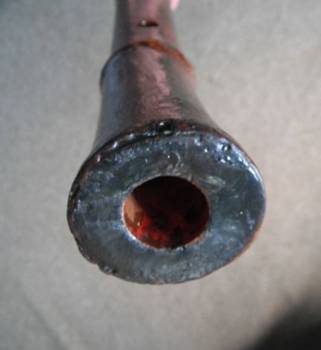ZEN MESTEREK ZEN MASTERS
« Zen főoldal
« vissza a Terebess Online nyitólapjára

覺阿 Kakua (1142-?)
覺阿 Kakua (1142-?) Japanese Buddhist monk who traveled to Sung China and became a Rinzai master there. Kakua was originally a Tendai monk who studied on Mount Hiei before he became interested in Zen. He went to China in 1171 and practiced under the Rinzai master Hui-yüan (1103–1176), better known as Fo-hai Ch'an-shih, of the Yang-ch'i lineage. He received the master's Dharma seal (inka) in 1175 and returned to Japan to propagate Zen. Kakua was among the first to attempt to spread Zen teachings in Japan, but he was largely unsuccessful. It is said that when Emperor Takakura (r. 1161–1181) invited him to court to speak about Zen, Kakua responded by playing a single note on his flute. The emperor and his entourage were not convinced, and Kakua eventually retired to a small hermitage on Mount Hiei, where he practiced Zen until his death.
FIVE ENLIGHTENMENT POEMS
by 覺阿 Kakua (1142-?)
In: ZEN POEMS OF CHINA & JAPAN: The Crane's Bill
Translated by Lucien Stryk and Ikemoto Takashi [池本喬, 1906-1980] with the assitance of Takayama Taigan [高山泰巌, 1933-1998], Zen Master
Anchor Books, Doubleday & Co., Inc., Garden City, New York, 1973. pp. 49-51.
76
Satori seekers make me sick!
Those that find it are deluded.
The old gimlet on Vulture Mountain—laughable.
Over my shoulder flies the broken ladle.—Kakua, 12 c.
77
I've crossed the sea after Truth.
Knowledge, that snare, must be defied.
Here and there, I've worn out heaps of sandals.
Now—moonlit water in the clear abyss.—Kakua
78
Forgetting mind, its complications,
My hand is free. The All appears.
I use devices, simultaneously.
Look—a halo penetrates the Void.—Kakua
79
How can I tell what I've seen?
Fall, stand—it's clear at once.
Wearing my cowl backwards, I
Trample the old path. And the new.—Kakua
80
Fisting, shouting like a petty merchant,
Saying yes, no: quicksand.
Cease pointing, explaining. Keep quiet.
There: now hear the flutist coming home?—Kakua
One Note of Zen
Case 68 in: 101 Zen Stories / transcribed by Nyogen Senzaki (千崎如幻 1876–1958) & Paul Reps (1895-1990), Philadelphia, David McKay Company, 1940. 126 p.
is a 1919 compilation of Zen koans including 19th and early 20th century anecdotes compiled by Nyogen Senzaki, and a translation of 沙石集 Shaseki shū [Collection of Stone and Sand], written in the 13th century by Japanese Zen master Mujū (無住) (literally, "non-dweller"). The book was reprinted by Paul Reps as part of Zen Flesh, Zen Bones.
After Kakua visited the emperor he disappeared and no one knew what became of him. He was the first Japanese to study Zen in China, but since he showed nothing of it, save one note, he is not remembered for having brought Zen into his country.
Kakua visited China and accepted the true teaching. He did not travel while he was there. Meditating constantly, he lived on a remote part of a mountain. Whenever people found him and asked him to preach he would say a few words and then move to another part of the mountain where he could be found less easily.
The emperor heard about Kakua when he returned to Japan and asked him to preach Zen for his edification and that of his subjects.
Kakua stood before the emperor in silence. He then produced a flute from the folds of his robe, and blew one short note. Bowing politely, he disappeared.
![]()
FURULYASZÓ
in: A zen kapui : Százegy zen történet : Nincs Kapu. Ford., szerk. és vál. Szigeti György, [Budapest] : Farkas Lőrinc Imre Kiadó, 1998, 71. oldal
Kakua a császárnál tett látogatása után eltűnt, és senki sem tudta, mi lett vele. Ő volt az első japán, aki Kínában tanulmányozta a zent. Mivel azonban semmit sem adott át a zenből, egyetlen furulyaszó kivételével, ezért nem úgy emlékszünk rá, mint aki a zen tanítást Japánba hozta.
Kakua kínai látogatása során teljesen elfogadta az igaz tanítást. Nem vándorolt szerteszét az országban, hanem folyamatosan az egyik hegy elhagyatott zugában meditált. Amikor rátalált valaki és tanítását kérte, néhány szó után továbbállt, és a hegy egy másik elhagyatott részén telepedett le, ahol senki sem találhatott rá.
Egy napon Kakua visszatért Japánba. Amikor ez a császár tudomására jutott, nyomban arra kérte, adjon tanítást maga és alattvalói épülésére.
Kakua csendben a császár elé lépett. Köntöse redőiből előhúzta furulyáját, és egyetlen rövid hangot csalogatott ki belőle. Majd méltóságteljesen meghajolt és eltűnt.